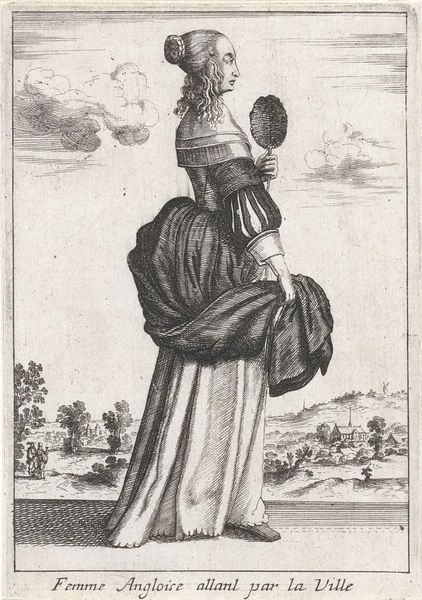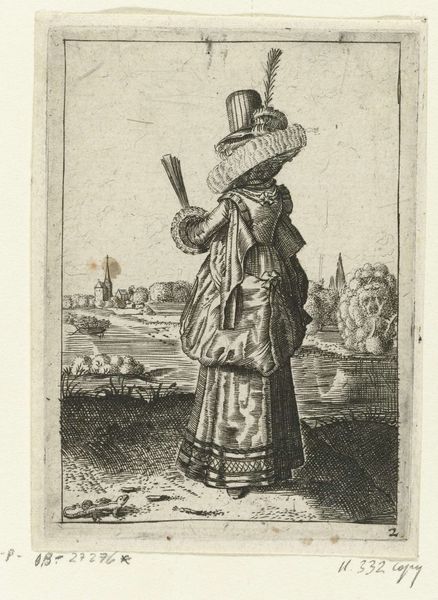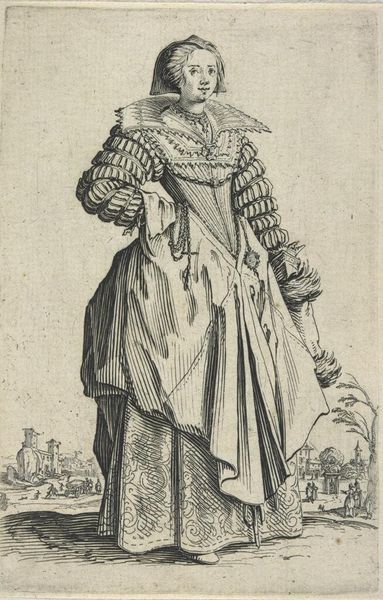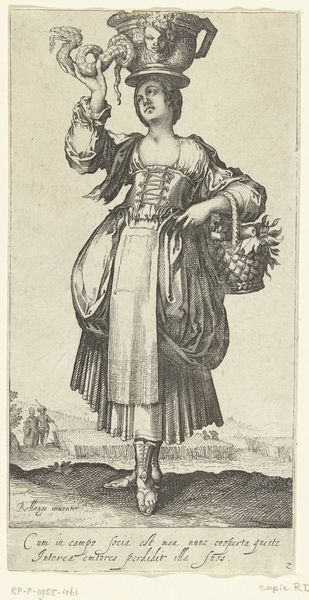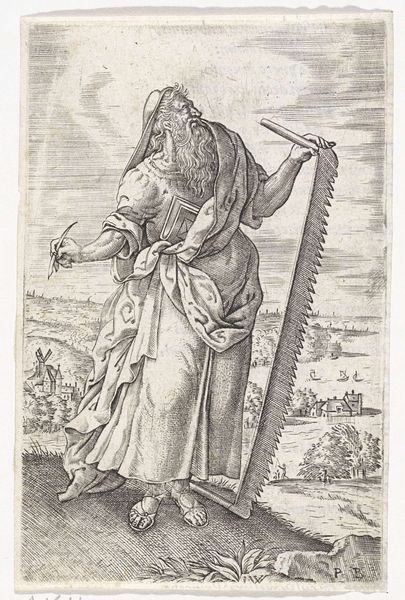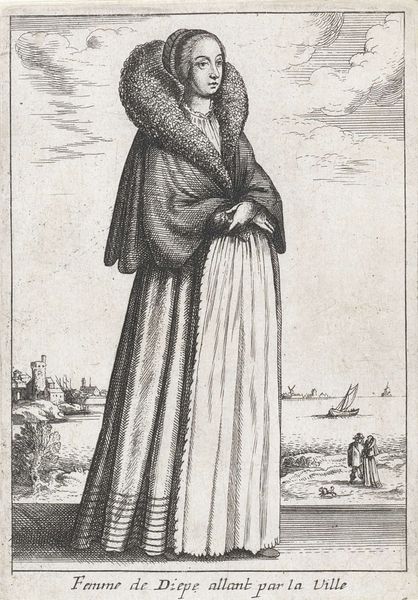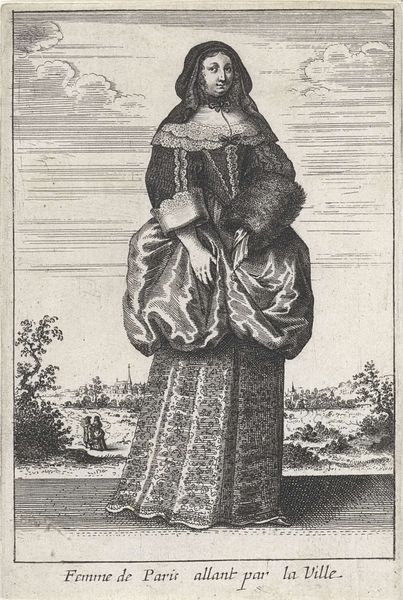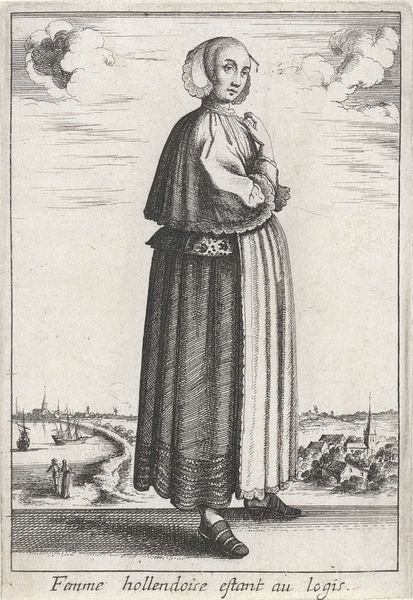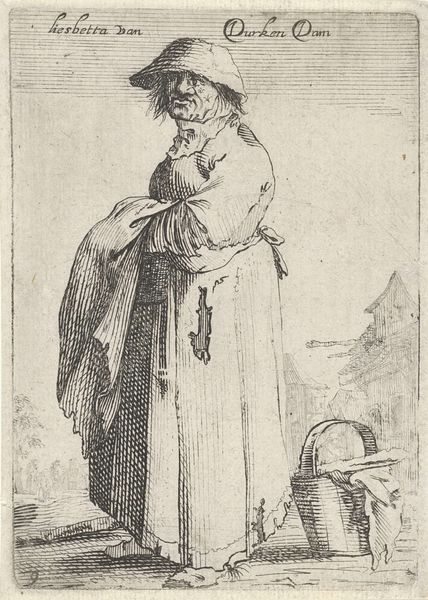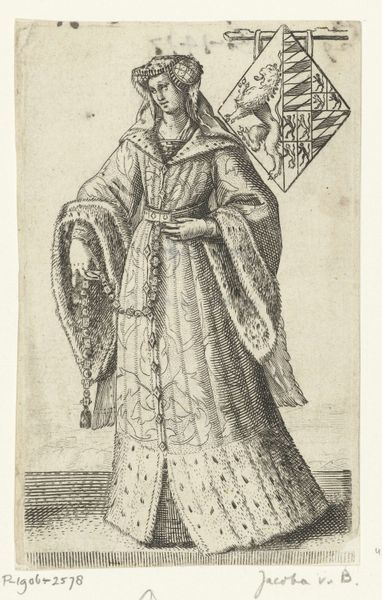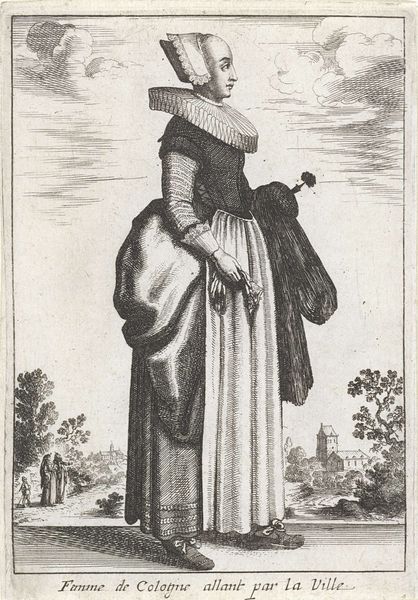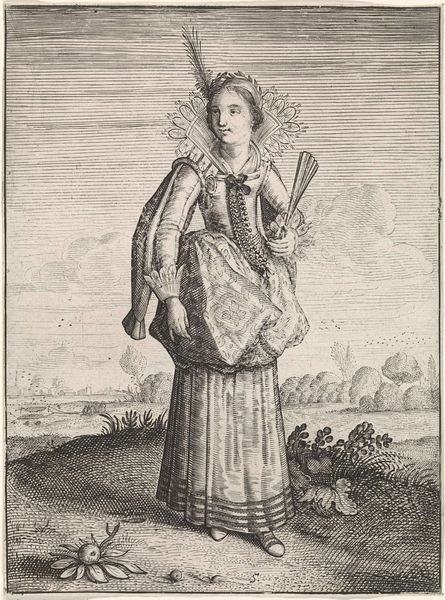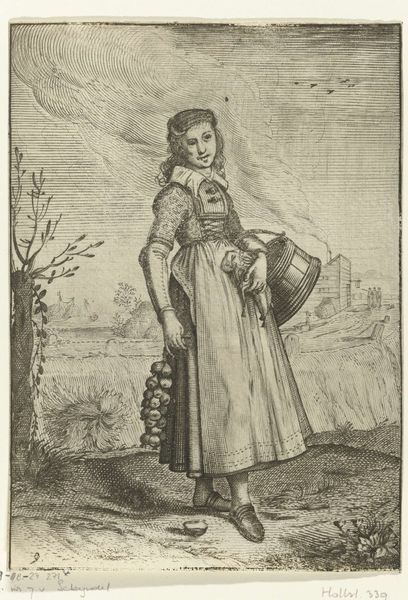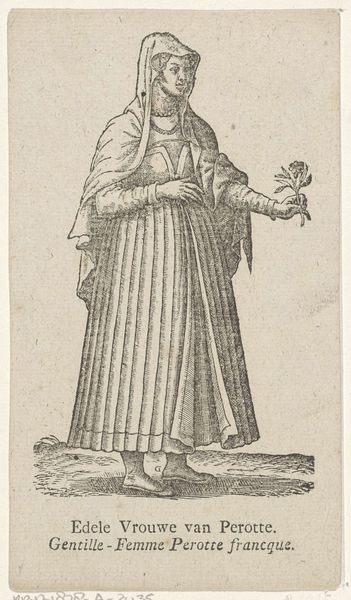
Habitus et cultus Matronarum Nobilu et Rusticarum (Clothing and Manners of Noblewomen and Countrywomen) 1619 - 1623
0:00
0:00
adriaenmatham
Rijksmuseum
print, engraving
#
baroque
# print
#
pen sketch
#
genre-painting
#
engraving
Dimensions: height 198 mm, width 139 mm
Copyright: Rijks Museum: Open Domain
This etching by Adriaen Matham captures the dress of noblewomen around the 17th century. Notice the striking ruff around the woman's neck; it's more than mere fashion. It's a symbol of status and separation. The ruff, evolving from the modest necklines of earlier centuries, became an elaborate barrier, dictating posture and presence. We see echoes of this distancing motif in earlier courtly attire, like the high collars of Elizabethan England. The fan she holds is also telling. Once a practical item for cooling, it transforms into a tool for communication and defense—a subtle language of flirtation and refusal, akin to the symbolic gestures found in ancient theatre. The lizard at her feet, a creature of metamorphosis, may suggest the mutability of fashion itself, ever-changing yet eternally present. These symbols resonate, inviting us to reflect on how we construct identity.
Comments
rijksmuseum over 2 years ago
⋮
This series highlights the contrast between the clothing of Dutch noblewomen and that of women from the provinces. The regional clothing evolves slowly over time, while the fashionable attire of the elite is subject to foreign influences. For example, the woman in plate 1 wears a Spanish, conical farthingale beneath her skirt, while the woman in plate 2 wears the bellshaped version from France.
Join the conversation
Join millions of artists and users on Artera today and experience the ultimate creative platform.
